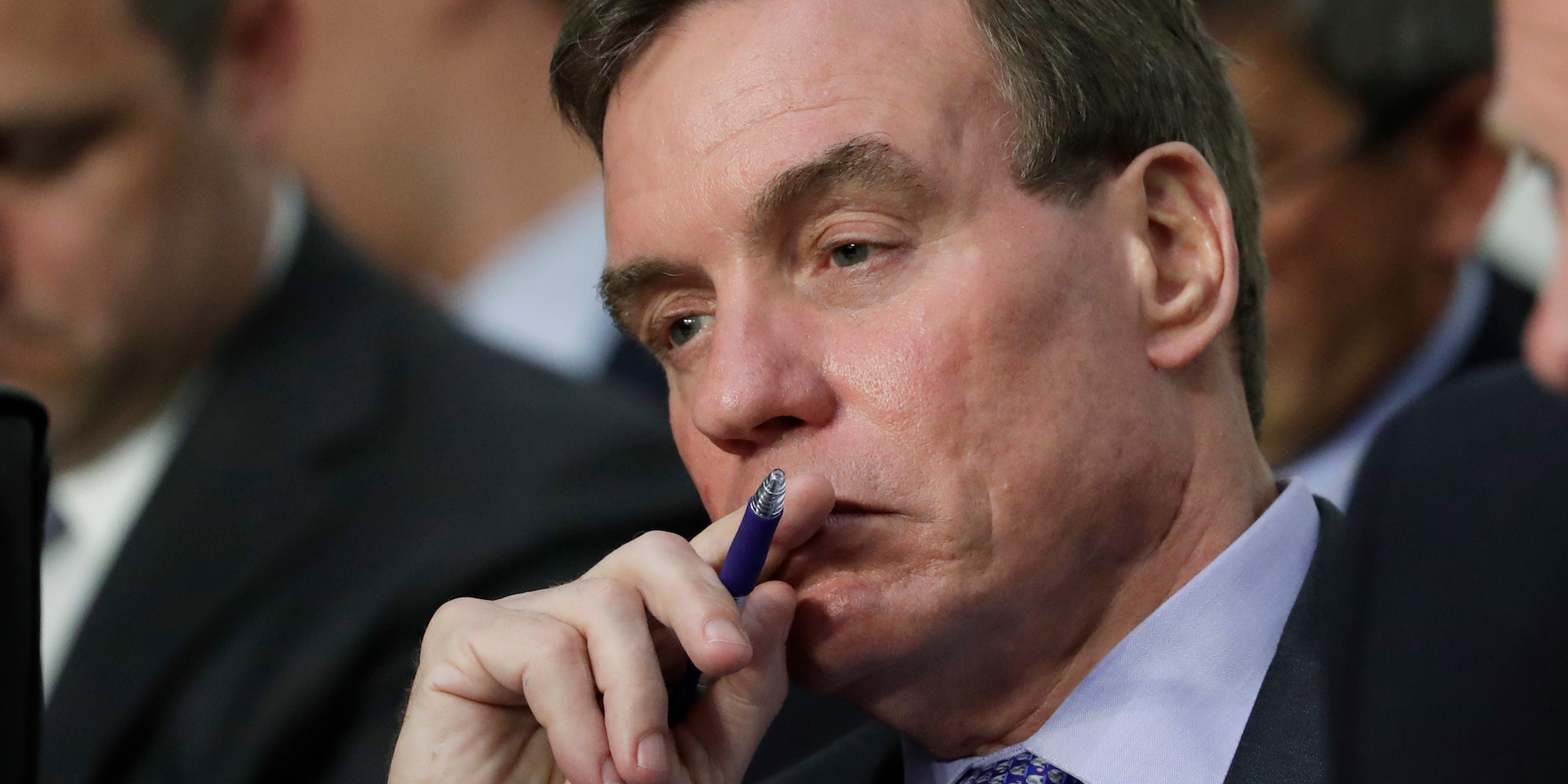- Mark Warner, the ranking member on the Senate Intelligence Committee, warned President Donald Trump to “be careful what you wish for” after Trump ordered the release of sensitive materials related to the Russia investigation.
- Trump has ordered “the immediate declassification” of parts of the FBI’s June 2017 application to surveil former Trump campaign aide Carter Page.
- While the Trump campaign sought to distance itself from Page after he drew scrutiny, the former adviser testified to the House Intelligence Committee last year that he had several contacts with people linked to Russia, at times with the campaign’s knowledge.
Mark Warner, the ranking member on the Senate Intelligence Committee, issued a stark warning after President Donald Trump on Monday ordered the release of sensitive materials related to the Russia investigation.
“Be careful what you wish for,” Warner said.
On Monday evening, the White House announced that Trump had directed the Office of the Director of National Intelligence and the Department of Justice (DOJ) “to provide for the immediate declassification” of parts of the FBI’s June 2017 application to surveil former Trump campaign aide Carter Page, as well as FBI reports of interviews connected to Page and DOJ official Bruce Ohr.
The president also asked the FBI and the DOJ to release, without redaction, all text messages pertaining to the Russia investigation from former FBI director James Comey, former deputy FBI director Andrew McCabe, former FBI agent Peter Strzok, FBI lawyer Lisa Page, and Department of Justice official Bruce Ohr.
Warner has read the Russia documents that Trump wants released.
One of the sections of the Page FISA application that Trump ordered declassified appears to relate to the time period that Page worked on Trump's campaign as a foreign policy adviser.
And pages 17 to 34 of the Page FISA application, which Trump wants released, deal with Page's possible coordination with Russian government officials on activities designed to influence the 2016 election.
While the Trump campaign has sought to distance itself from Page after he drew scrutiny, the former adviser testified to the House Intelligence Committee last year that he had several contacts with people linked to Russia, at times with the campaign's knowledge.
His testimony also appeared to corroborate key sections of the so-called Steele dossier, a collection of explosive memos compiled by the former British spy Christopher Steele that alleges collusion between the Trump campaign and Russia.
Several parts of one section of the Page FISA application that Trump wants declassified also appear to contain information about confidential sources that Steele used while compiling his dossier, as well as Steele's own history as an FBI source.
Trump did not ask the DOJ and FBI to declassify subsequent portions of the document that detail Page's activities and Russian efforts to recruit him as an agent before he joined the campaign.
The president also did not order the declassification of another part of the document that details information Page provided to the FBI during an earlier interview, or sections that go over Russia's attempts to recruit New York City residents as intelligence assets.
Trump's decision alarmed national security experts, who cautioned that the declassification of some of the material Trump wants released could endanger the lives of confidential sources and harm the US' relationship with its foreign allies.
"The President shouldn't be declassifying documents in order to undermine an investigation into his campaign or pursue vendettas against political enemies," Warner tweeted on Monday. "He especially shouldn't be releasing documents with the potential to reveal intelligence sources."
Meanwhile, Adam Schiff, the ranking member on the House Intelligence Committee, revealed Monday that the FBI and DOJ had told him that if the release of such sensitive documents related to the Russia probe and the FBI's sources and methods would breach a "red line."
The White House said the president made his decision in the interest of "transparency" and at the request of several congressional committees.

